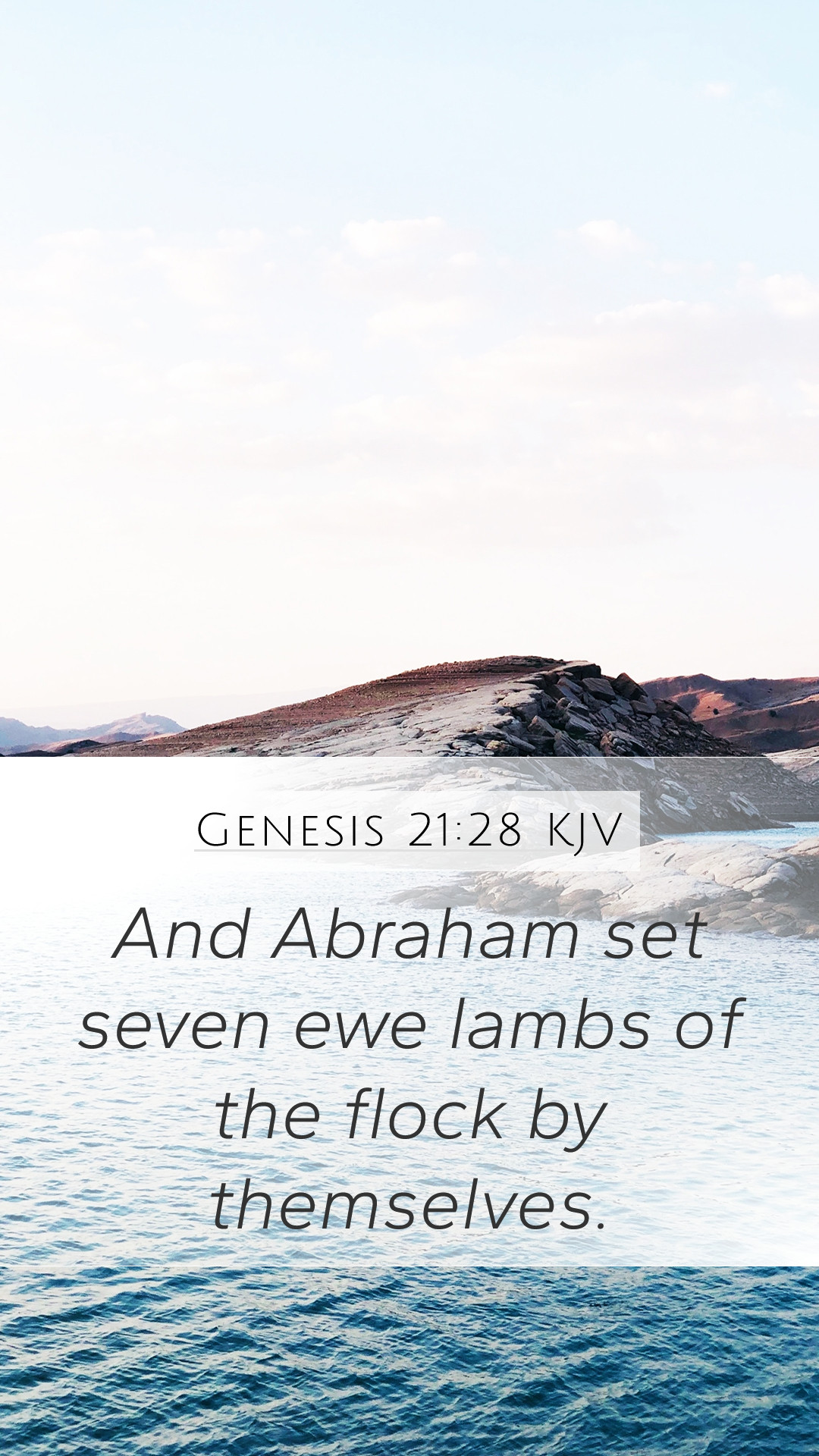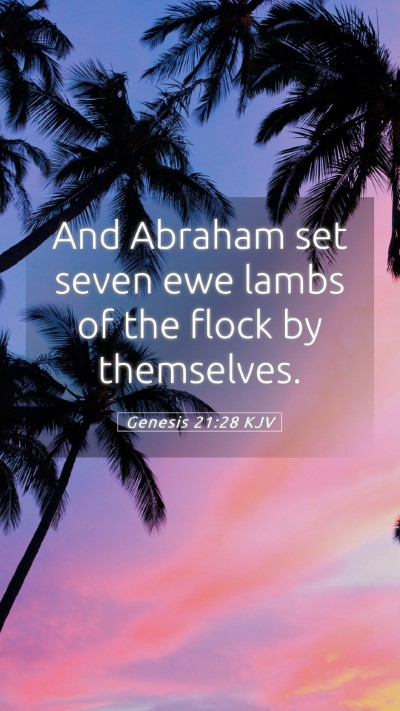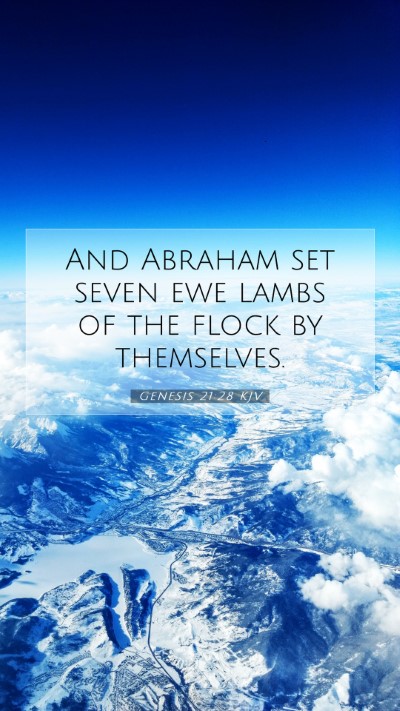Understanding Genesis 21:28
This exploration of Genesis 21:28 seeks to provide a comprehensive understanding of this biblical verse through the insights of notable public domain commentaries including Matthew Henry, Albert Barnes, and Adam Clarke. We will delve into the meaning of this verse, its implications, and how it fits into the broader context of Scripture.
Bible Verse Context
Genesis 21:28 states: "And Abraham set seven ewe lambs of the flock by themselves." This action takes place amidst an ongoing interaction between Abraham and Abimelech regarding a well of water. Understanding this verse involves examining its context and ramifications.
Verse Meaning and Analysis
Historical Context
- Abraham's Treaty with Abimelech: This verse is part of a larger narrative that shows Abraham's dealings with Abimelech, the king of Gerar. Here, Abraham is establishing a covenant regarding the well that had been taken from him.
- Significance of the Lambs: The seven ewe lambs that Abraham sets apart symbolize a gift and a means of establishing peace. In ancient Near Eastern culture, such gestures were critical in negotiating agreements.
Biblical Exegesis
According to Matthew Henry, this act of separating the lambs illustrates Abraham's desire to ensure clarity and goodwill in his covenant. It signifies the importance of accountability and mutual recognition in agreements. Albert Barnes points out that the sacrifice of these lambs serves as a reminder of the value placed on peaceful resolutions and the ethical conduct expected even among leaders.
Adam Clarke further supports this view by emphasizing that the number seven represents completeness and perfection. Thus, Abraham’s action symbolizes a full and sincere commitment to the agreement made with Abimelech.
Theological Insights
This verse encapsulates several theological themes:
- The Importance of Peace: It illustrates the biblical teaching on the need for peaceable resolutions and the role of integrity in human relationships.
- God’s Providence: This moment underscores God’s guidance in the lives of His chosen people and His provision for their needs, displayed through Abraham's negotiations.
- Foreshadowing Christ: The act of offering lambs can also be seen as a foreshadowing of the ultimate sacrifice of Christ, the Lamb of God, who establishes a new covenant.
Application in Daily Life
Understanding Genesis 21:28 can offer meaningful insights for personal conduct and conflict resolution:
- Prioritize Relationships: Just as Abraham sought to maintain peace with Abimelech, we should strive to foster peace in our relationships.
- Integrity in Agreements: The importance of honesty and clarity in our own engagements and commitments cannot be overstated.
- Spiritual Symbolism: Reflecting on the lambs' symbolism can lead to deeper discussions about sacrifice, grace, and covenant in our Christian faith.
Related Bible Cross References
- Genesis 21:22-24: The prior conversation between Abraham and Abimelech about the well.
- Genesis 26:15-22: A similar situation concerning wells and treaties involving Isaac.
- Matthew 5:9: “Blessed are the peacemakers, for they shall be called sons of God.”
Conclusion
In conclusion, Genesis 21:28 is not just a historical account but a rich source of Bible verse meanings and insights. Through the lenses of various commentators and the wider theological implications, one can grasp the importance of peace, integrity, and covenant in biblical teaching and apply these lessons in everyday life.


